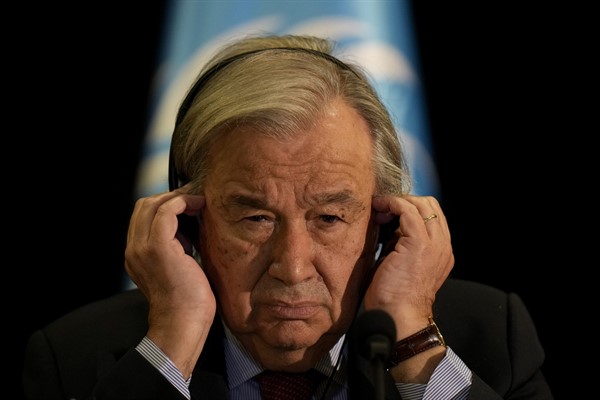Antonio Guterres starts his second five-year term as United Nations secretary-general this week. He spent much of his first term navigating very difficult relations with the administration of former U.S. President Donald Trump. He would like to spend the coming years overhauling the U.N. system to respond to challenges like climate change and inequality. Geopolitics may get in the way.
Diplomats in New York rate Guterres as an extremely intelligent but instinctively cautious politician. He has had good reasons for caution. In addition to dealing with the mercurial Trump, Guterres has had to accommodate an increasingly influential China in the U.N. system. He has so far managed to avoid offending either Washington or Beijing, the latter in part due to his general wariness of making strong statements on human rights issues, which he thinks often have no real impact. Western officials hope that he will be more outspoken on these issues in his new term.
Guterres has also been frustrated by the U.N.’s waning role as an international peacemaker. When he won office, he promised a “surge of diplomacy” to resolve conflicts, but he has found that many governments and rebel groups are unresponsive. Major power tensions have left the Security Council persistently divided during his tenure, reducing the secretary-general’s room to engage creatively in either long-running wars—like the one in Syria—or fresh conflicts, such as the Ethiopian crisis. Guterres has pleaded for the big powers to get along better, but he is known to think that regional bodies like the African Union will need to lead on peacemaking in future.

